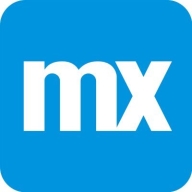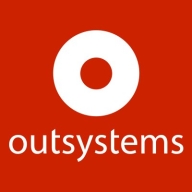


Find out what your peers are saying about OutSystems, Salesforce, Mendix and others in Mobile Development Platforms.



Ionic is an open-source UI toolkit for developing high-quality mobile and desktop apps with web technologies such as HTML, CSS, and JavaScript. Ionic focuses on the frontend UX and UI interaction of an app – UI controls, interactions, gestures, and animations. It is simple to learn and can be used without any frontend framework by utilizing a simple script inclusion.
While previous versions of Ionic were strongly connected to Angular, version 4.x of the framework was re-engineered to serve as an independent Web Component library, with integrations for the newest JavaScript frameworks, such as Angular. Ionic works well in most frontend frameworks, including React and Vue, however some frontend frameworks require a shim to enable full Web Component support.
The official Ionic CLI, or Command Line Interface, is a tool that enables developers to easily construct Ionic apps and offers a number of useful commands. The CLI installs and updates Ionic and also includes a built-in development server, build and debugging tools, and much more. If you are an Appflow member, you may manage your account and carry out cloud builds and deployments via the CLI.
Ionic Features
Ionic has many valuable key features. Some of the most useful ones include:
Ionic Benefits
There are many benefits to implementing Ionic. Some of the biggest advantages the solution offers include:
Mendix is a low-code application development platform that helps your organization accelerate its application development lifecycle. The solution is designed to enable you to create software faster by abstracting and automating the development process for better business outcomes at speed and scale. Mendix has many key capabilities, including a tailored IDE for every developer, built-in collaboration tools for team development, feedback management, agile project management, the ability to build a truly responsive design across devices, and much more.
Mendix Features
Mendix has many valuable key features. Some of the most useful ones include:
Mendix Benefits
There are many benefits to implementing Mendix. Some of the biggest advantages the solution offers include:
Reviews from Real Users
Below are some reviews and helpful feedback written by PeerSpot users currently using the Mendix solution.
PeerSpot user Somnath G., Solution Architect and LowCode Practice Lead at a tech services company, says, "What I found most valuable in Mendix is that it's very much suitable for mobile apps such as native Android or IOS supported mobile apps. The multiple features of the platform are very, very attractive and very popular. Mendix has technical features such as microflows and nanoflows. You can also access data models in the platform. These are the features that are very, very strong in Mendix. I got my hands dirty on other low-code platforms, but I have not seen such strong features in them compared to the microflows, nanoflows, and data model access that are in Mendix, including creating and integration. The platform has out-of-the-box adapters or out-of-the-box-connectors that you can integrate with different interface applications such as SAP, Salesforce, Oracle EBS, etc."
Sameer V., Consulting Manager at Deloitte, mentions, “Their native mobile capability is very good. In general, the way they launch the product has been great. Their product launching strategy is far better than any other platform. I work in OutSystems and Mendix. They tend to be more on the legacy side, OutSystems. With this solution, the product launching strategy is very, very agile. I really like when they roll out their updates, which are very, very frequent.”
Robert B., Solutions Architect at a computer software company, explains, The solution is just very quick and responsive. The initial setup is very straightforward, and those implementing the product do not have to be very technologically advanced in order to manage the process.”
OutSystems is a platform for low-code application development that unites design, code, and deployment to simplify development so any business can create innovative solutions in a timely manner. There are various use cases an organization can employ with OutSystems, including:
OutSystems offers faster development and deployment times than hand-coding while delivering unique and personalized solutions to its customers. The main focus of OutSystems is high-performance low code which enables businesses to create functional products that answer their needs. It offers clients the ability to develop enterprise-grade applications with a high level of security.
The product stands out from its competitors as it offers:
It ensures its clients that the applications built using this platform are as scalable as hand-coded ones while increasing workspace productivity and evolving applications’ capabilities.
OutSystems Features
OutSystems has various features through which users can develop and deploy highly efficient applications and other products. Some of the features include:
OutSystems Benefits
The solution offers a wide array of benefits to companies that utilize it in their application development. Some of these benefits include:
Reviews from Real Users
Harikrishnan R., a technical lead at Netlink Software Group America Inc, likes OutSystems because the tool helps with validation, offers good features, and is reliable.
An owner at a consultancy thinks OutSystems is versatile with great scalability and great technical support.